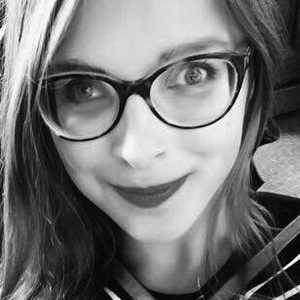The Importance of Following Through
Disability is so trendy right now.
There’s an ongoing conversation happening around accessibility these days, whether it’s about getting into stores or engaging everyone in a theatre performance. If you were to listen in, it would seem like an issue everyone really wants to solve.
As a blind woman and a PhD student studying accessible approaches to creating and participating in theatre in Canada for people who identify as having a disability, I spend a lot of time thinking about the assumptions surrounding accessibility. And as a theatre artist, I’ve become a consultant for people who want to create more accessible theatre. Considering people who experience disability within your work lifts the standards for accessibility in the arts across the board.
A few months ago, I noted that the very large and exciting Toronto Fringe Festival was coming up, and hundreds of shows were about to be presented in theatres across the city at the same time. With all the talk about disability and access, I thought this would be the perfect opportunity to help other artists create accessible shows. It was with that in mind that I posted in a Toronto theatre Bunz group on Facebook offering my services.
Artists—and everyone else, really—often find conversations surrounding ableism, intersectionality, and appropriate content or accommodations to be difficult. I have heard many people express discomfort and even shame for having to ask hard questions or not knowing how to talk openly about disabled people in the theatre. So, in my Bunz post, I wrote that members of all Fringe shows could approach me about creating accessible theatre, ask the uncomfortable questions, and that I would offer my assistance in open and honest ways. Bunz is a community based on trading goods and services, so I wasn’t asking to be paid or included in another show’s credits—maybe the people who took me up on the offer could buy me a coffee or bottle of wine. These sensitive conversations aren’t meant to be intimidating in any way, so opting for the informal made sense.
Ninety-nine people “liked” this post, and many commented saying how great of an offer it was. I was thrilled.

At the time, I was in the process of creating a show for the Toronto Fringe with a group of women, and from the beginning we had decided to infuse accessibility into it. Our casting call had complied with Accessibility for Ontarians with Disabilities Act (AODA) regulations, which meant we held auditions—and would hold our rehearsals and the performances—in accessible venues; the content would have movement descriptions; and, as we brought the piece to its feet, we would take into account everyone’s physical needs and capabilities. Our entire show grew out of the idea I’m developing for my graduate work: that theatre and art should begin with an accessible idea, rather than only considering its accessibility afterwards.
These were the kinds of things I wanted to discuss with other Fringe artists. What ideas did they have? What were they doing already? How could I help them grow their pieces into emblems of accessible theatre? But I found, from the nearly one hundred people who “liked” or endorsed my post, only a handful reached out for some kind of assistance, and only one person seriously followed through on my offer.
Could I have followed up with people who stated they were interested? Yes. Should I have to? No. Maybe I’m too cynical and all of these folks who expressed interest found other ways to make their work accessible. But I am a real, breathing disabled person offering to be your resource, why not take me up on that?
This Fringe, I am celebrating my own show, Nourishment, an intergenerational exploration of the places and situations where women meet and how they balance struggles, strength, and activism with daily life. This project is my first attempt at creating a piece of theatre with people who experience disability in mind and at the creative helm. Our team has had ideas that incorporate accommodations further than anything I could have imagined on my own, which goes to show the importance of collaboration when considering the needs of others.
I choreographed the moments of movement in this play, and each moment prioritizes the actor’s comfort with the movements as opposed to the audience’s view of them, which naturally creates beautiful visions on stage. But, on top of this, we also have integrated descriptions that explain how these moments fit into the play. This accommodation was intended for the blind community, but it brings extra beauty to the moments and the piece.
As a person with a disability, I live in a world where accessibility is generally an afterthought and where the small actions that people take feel big, because the alternative is that nothing is done at all. I was proud that so many people “liked” my post and commented support, but that’s where my celebration ended. Why did those individuals think it was enough to react and not follow through?
I don’t believe it’s possible for every space to accommodate the needs of each person inside of it. But I do have hope that there are compassionate people out there willing to change the ways they normally work, be it the amount of time, resources, or money they put into considering people who experience theatre different from themselves. I will not stop talking about accessibility and the need for diverse stories onstage. And I hope that the next time I post online, more people want to engage in a conversation, as I believe it’s the only way we can change the communities we live in.









Comments